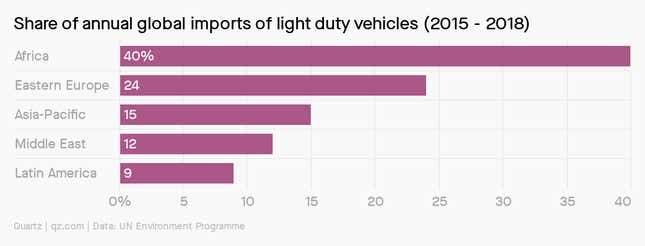Good morning, Quartz readers!
Here’s what you need to know
The US wants to break up Facebook. The US Federal Trade Commission and attorneys general from 46 states filed a pair of antitrust lawsuits against the company. Among the remedies sought are forcing Facebook to sell off WhatsApp and Instagram.
There was more good news on Covid-19 vaccines… The United Arab Emirates approved a vaccine made by Sinopharm in China with an efficacy rate of 86%, but scientists elsewhere said important details are missing from the announcement. Meanwhile, Canada authorized Pfizer’s vaccine and could begin giving shots next week.
…plus a hiccup… India asked for more data on two vaccine candidates before granting emergency authorization.
…and a hack. Hackers accessed documents filed by Pfizer’s partner, BioNTech, with the European Medical Agency, although the regulator said it shouldn’t delay the vaccine’s approval.
DoorDash delivers for investors. The delivery app soared in its stock market debut, closing 84% higher than its $102 IPO price.
The Indian farming standoff intensifies. Farmers fighting the deregulation of agriculture in India rejected the latest proposals from the government and threatened to block additional highways in protest.
India approved setting up public wifi. The free network will use local shops and community centers as hotspots.
What to watch for
Apple this week announced plans to release its first-ever wireless over-ear headphones, the AirPods Max, at a hefty price tag of $549. It’s the latest indicator that the company, for whom AirPods have generated a ton of cash, will continue to roll out new options on an iPhone-like cadence:
December 2016: First-generation AirPods
March 2019: Second-generation AirPods
October 2019: AirPods Pro
December 2020: AirPods Max
Ironically, releasing pricey headphones on Dec. 15—just ahead of holiday season—is likely to boost sales of Apple’s regular AirPods. Research shows that introducing a more lavish option of a product makes the first option look like a relative bargain.
Charting used car imports
Importing cheap, second-hand vehicles from Japan is big business across many African countries whose citizens cannot afford new ones; Japan produces some of the most popular car models driven on the continent.

However, environmentalists worry that exporters of high carbon-emitting used cars are dumping the automobiles in Africa that they can’t sell in their home countries. Tawanda Karombo explains why Zimbabwe has just joined countries including Zambia, South Africa, and Uganda in cracking down on the practice.
Moving beyond tokenism in the boardroom
Research has shown there needs to be a critical mass of women—at least three—on a company’s board in order for the rest of the members to accept them as equals. To make that happen at New Zealand telecommunications company Spark, Justine Smyth accepted a position as board chair in 2011 only “on the condition that the next director would also be female.” Spark’s board is now 50% women, including its executive chair and CEO.
One needn’t be a woman or member of a racial or ethnic minority in order to make this kind of impact; as Sarah Todd writes for Quartz at Work, one need only be an ally. To read about other tactics for combating injustice in the workplace, check out our recent field guide on how to build an anti-racist company.
✦ If you find yourself reading a critical mass of Quartz stories, considering supporting our journalism by becoming a member. You can even try it for free for seven days.
Surprising discoveries
The coronavirus is even tanking fake travel. A Royal Caribbean “cruise-to-nowhere” had to return to Singapore and quarantine 2,000 passengers in their cabins after one tested positive.
Post-TikTok ban, Indians have cut their video app usage. Homegrown rivals have only managed to pick up 40% of the time Indians were spending on the Chinese platform.
Manmade materials now outweigh living things. The discrepancy is only likely to get worse.
More people are cheating at online chess. It was checkmate for the 18,500 users who Chess.com caught violating fair play rules in November.
Pandas smear themselves with horse manure to keep warm. Chinese scientists spent more than 10 years (really) figuring this out.
Our best wishes for a productive day. Please send any news, comments, less expensive fancy headphones, and clean pandas to hi@qz.com. Get the most out of Quartz by downloading our iOS app and becoming a member. Today’s Daily Brief was brought to you by Sarah Todd, Liz Webber, and Oliver Staley.
